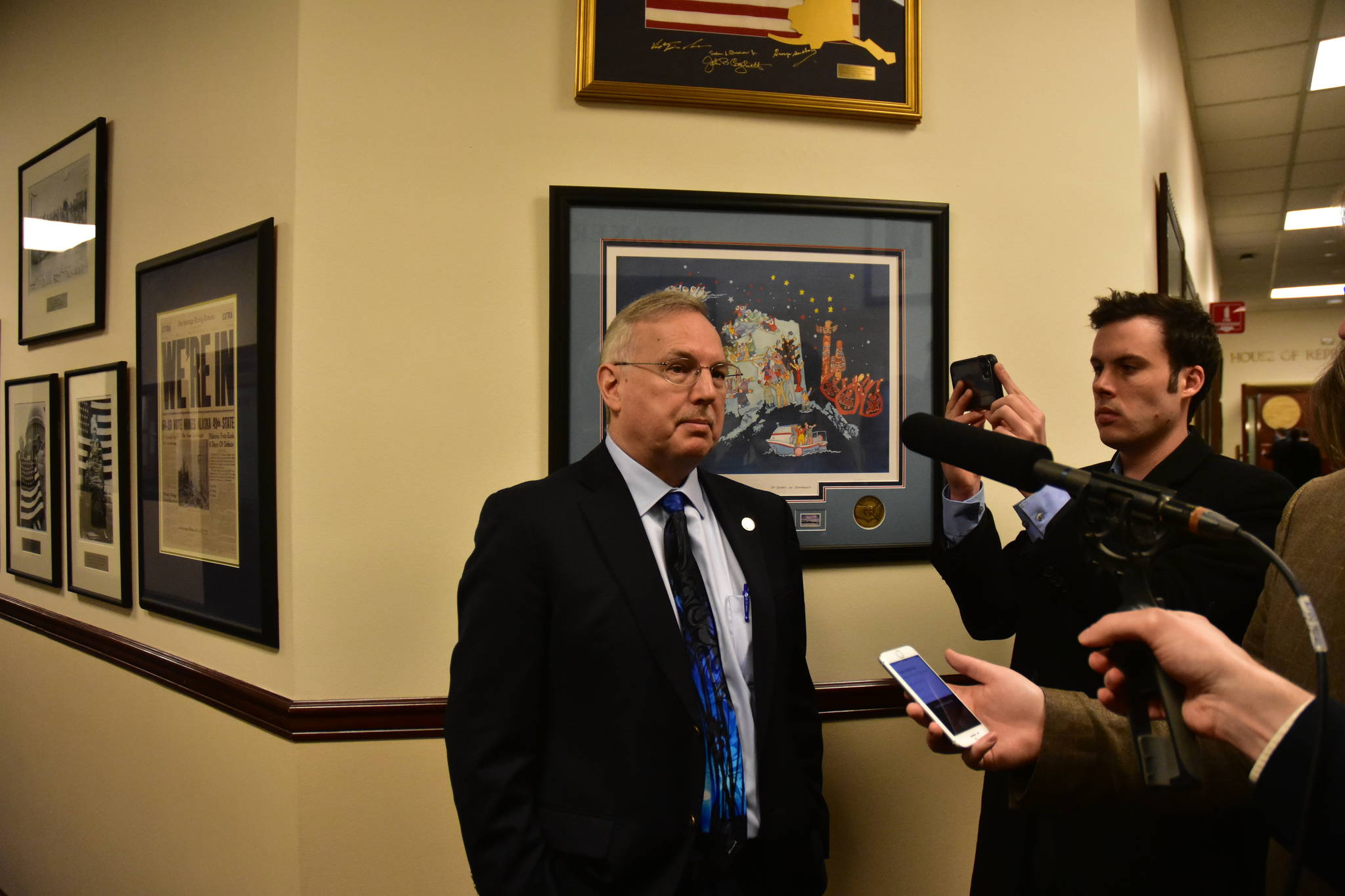Gov. Mike Dunleavy released his supplemental budget proposal Wednesday, asking for more than $265 million from the Legislature for costs incurred during the 2020 fiscal year.
The largest costs in the supplemental budget are $120 million for Medicaid services and more than $110 million for the firefighting efforts over the summer to combat the state’s wildfires.
The bill submitted by the governor requests a total of $265,046,600 from the state’s unrestricted general fund account, $15 million over the $250 million in “head room” the Legislature appropriated last year for the supplemental budget. The extra money needed to cover the expenses in the supplemental will have to be drawn from the Constitutional Budget Reserve, which requires a two-thirds vote in both houses of the Legislature.
It’s possible lawmakers could remove certain items from the budget but it’s not yet clear that will happen.
Rep. Jennifer Johnston, R-Anchorage and co-chair of the House Finance Committee said that keeping within the $250 million head room would be an ideal scenario.
“We do have an issue of what’s available for revenue and what’s available in our savings,” she told reporters Wednesday. “We have to be aware that we have $1.9 to $2 billion in our CBR account and we need to manage that well at this point.”
Everything in the supplemental budget will be well vetted before the legislation is passed, Johnston said.
Administration officials met with reporters Wednesday morning to discuss the budget and one official noted those two expenses together took up the bulk of the budget. Without them, the supplemental requests only about $35 million, the official said.
Also included in the budget is a total of $12 million for the Alaska Marine Highway System. Seven million of that money will be used to maintain service during the spring and summer schedules as well as add service to Angoon and Prince Rupert, according to a breakdown of the budget requests. Another $5 million will be used for vessel repairs.
Other items included in the budget were $1 million for the Pioneer Home Payment Assistance program based on the increased rates and additional funding for Alaska State Troopers.
“It’s what we expected,” House Speaker Bryce Edgmon said of the budget request. “It’s probably the largest supplemental budget the Legislature has ever seen.”
Edgmon said he was grateful the governor decided to add back Medicaid expenses that were cut last year as well as addressing the state’s fire season. The speaker did note that request for a supplemental Permanent Fund Dividend payment was absent from the budget. The governor had said previously such he may put that request into the supplemental budget.
The total supplemental budget calls for more than $500 million, but roughly $225 million of that will be covered by federal funds, according to summary documents from the Office of Management and Budget.
“The state has unanticipated and significant costs that will have to be covered this year through supplemental appropriation legislation,” Dunleavy said in a statement. “We still have significant earthquake damage that needs to be repaired, in addition to last summer’s massive wildfires that drained the disaster account, and an abrupt change in direction by the federal government on Medicaid funding.”
The statement did not specify what the abrupt change in direction on Medicaid the governor was referring to. In the breakdown of the supplemental budget, OMB said Alaska’s Medicaid program was one of the most generous in the nation and that the governor sought legislative assistance in streamlining the program. But, the document says, no statutory changes to Medicaid were made.
“After working with the Centers for Medicare and Medicaid Services, and gathering input from interested stakeholders, a number of cost containment measures were discontinued or could not be implemented as quickly as originally anticipated,” the breakdown says.
The Legislature cut $70 million from Medicaid services last year, and the governor vetoed an additional $70 million, including benefits for adult dental services. Much of that money is being added back in the supplemental budget.
As to how soon the supplemental budget might be passed, Johnston couldn’t say.
“As you know budgeting is a compromise,” she said. “There are some items where the funding is going out, so we will have a fast track.”
• Contact reporter Peter Segall at 523-2228 or psegall@juneauempire.com.

